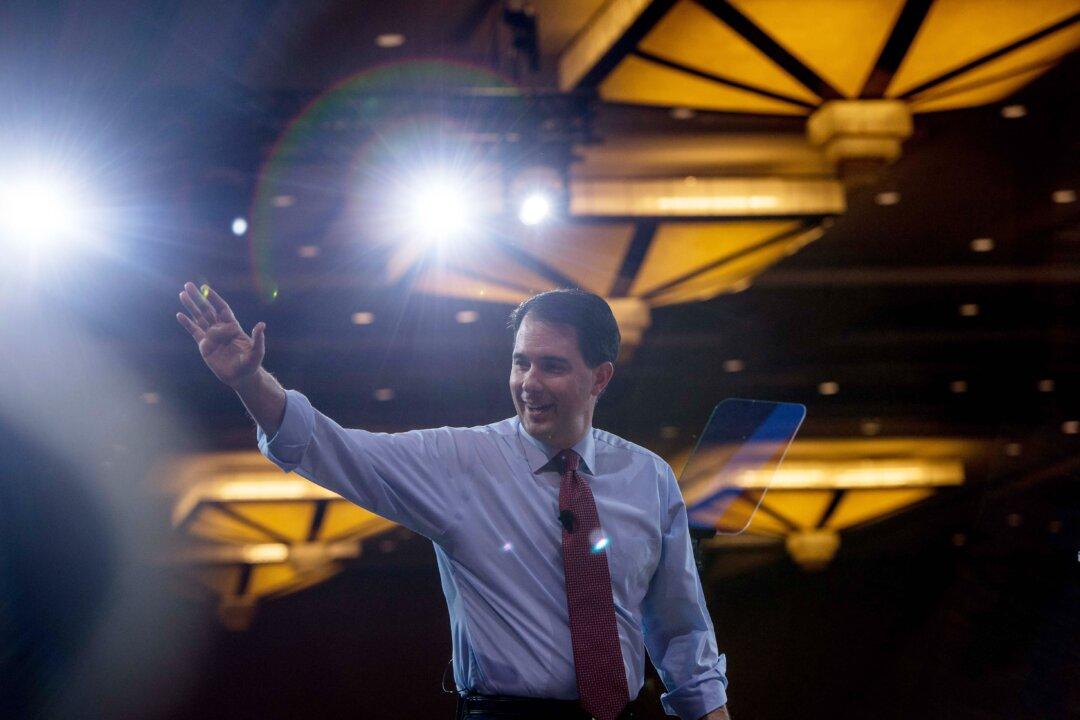“I actually, as crazy as it sounds, like campaigning,” Scott Walker said Friday at the Conservative Political Action Conference (CPAC), and for good reason too. Walker had just given a stellar performance before the national press and deftly defused what could have become a major gaffe.
The day before, the Wisconsin governor had triggered a media maelstrom when his allusion to labor unions in a speech on ISIS was misconstrued as suggesting an equivalence of the two. Many expected him to apologize for the statement, but Walker held firm.
“I want a commander in chief who will do everything in their power to ensure that the threat from radical Islamic terrorists does not wash up on American soil. We will have someone who leads, and ultimately will send a message that not only will we protect American soil but do not take this upon freedom loving people anywhere else in the world,” Walker said on Thursday. “We need a leader with that kind of confidence. If I can take on 100,000 protestors, I can do the same across the world.”
Walker was talking about the 2011 protests by Wisconsin’s unions that aimed to pressure the state’s Supreme Court to strike down a budget that had massive spending cuts. On Friday, he clarified that his comments weren’t meant to demonize the protestors, but did not retract or apologize for the allusion.
“My point was just, if I could handle that kind of a pressure and kind of intensity, I think I’m up for the challenge for whatever might come, if I choose to run for president,” Walker said.
As a front-runner in 2016 Republican presidential primary, Walker has met skepticism about his foreign policy credentials. The common thread between the union protests and ISIS, Walker explained, was that both would test a lawmaker’s ability to stand tall under pressure.
“One of the most significant foreign policies taken in my lifetime was when Ronald Reagan—he was governor before he was president—fired the air traffic controllers, even though it had nothing to do with foreign policy,” he said. “It had a tremendous impact because it sent a powerful message around the world that this guy was serious. To our allies, you knew you could take him seriously and you could trust him, to our adversaries you knew not to mess with him.”
“To me, that example is the closest thing I have in terms of taking on the pressure out there,” Walker added.
CPAC saw a new side of Walker that may well be a reversal of his campaign strategy. Walker has been lampooned multiple times for his lukewarm answers on everything from immigration, evolution, to Obama’s religious beliefs. This time, he refused to budge an inch and doubled-down on controversial allusions to Wisconsin’s unions, knowing that any ambiguity would be exploited by hostile critics to speculate what his real beliefs really are.
When Walker first emerged as a leader in the polls of key primary states in January, many conservatives had questioned whether he had the staying power to compete with Jeb Bush, deemed the inevitable candidate by most observers. His recent poll numbers are as strong as ever, and a string of similar performances on the campaign trail can only push those figures up.





